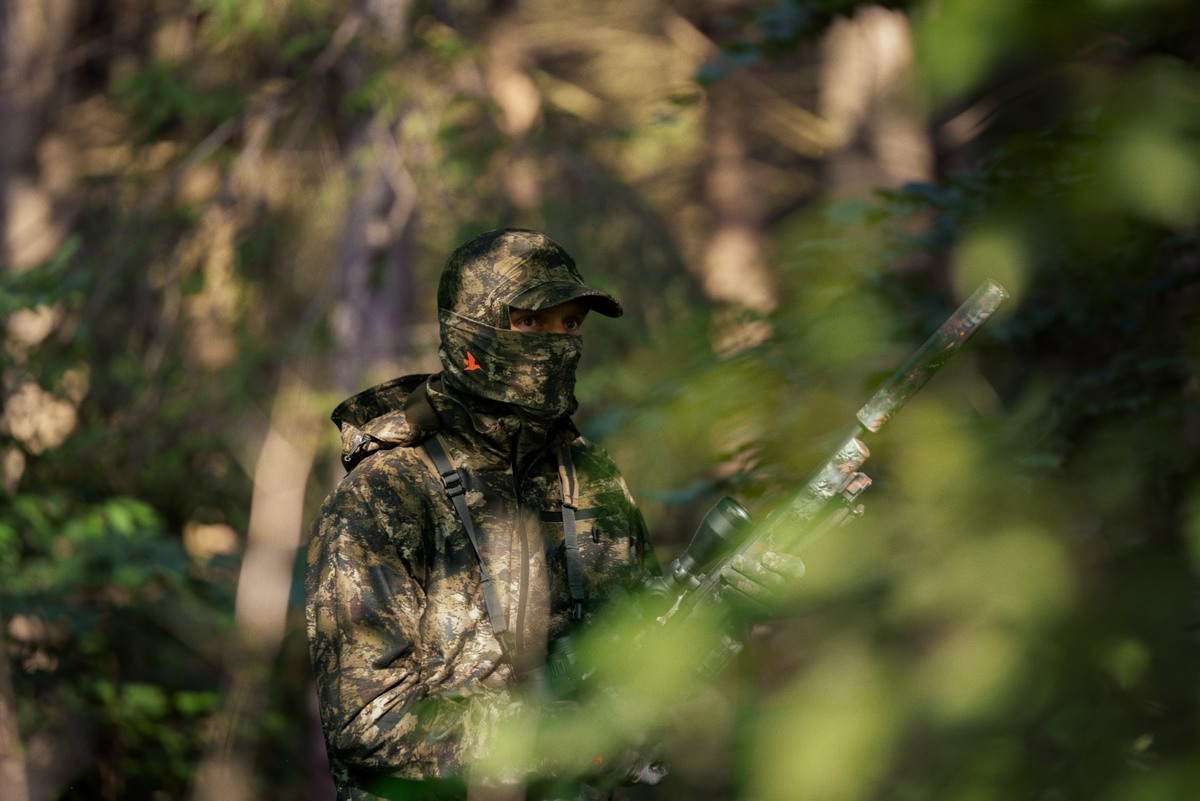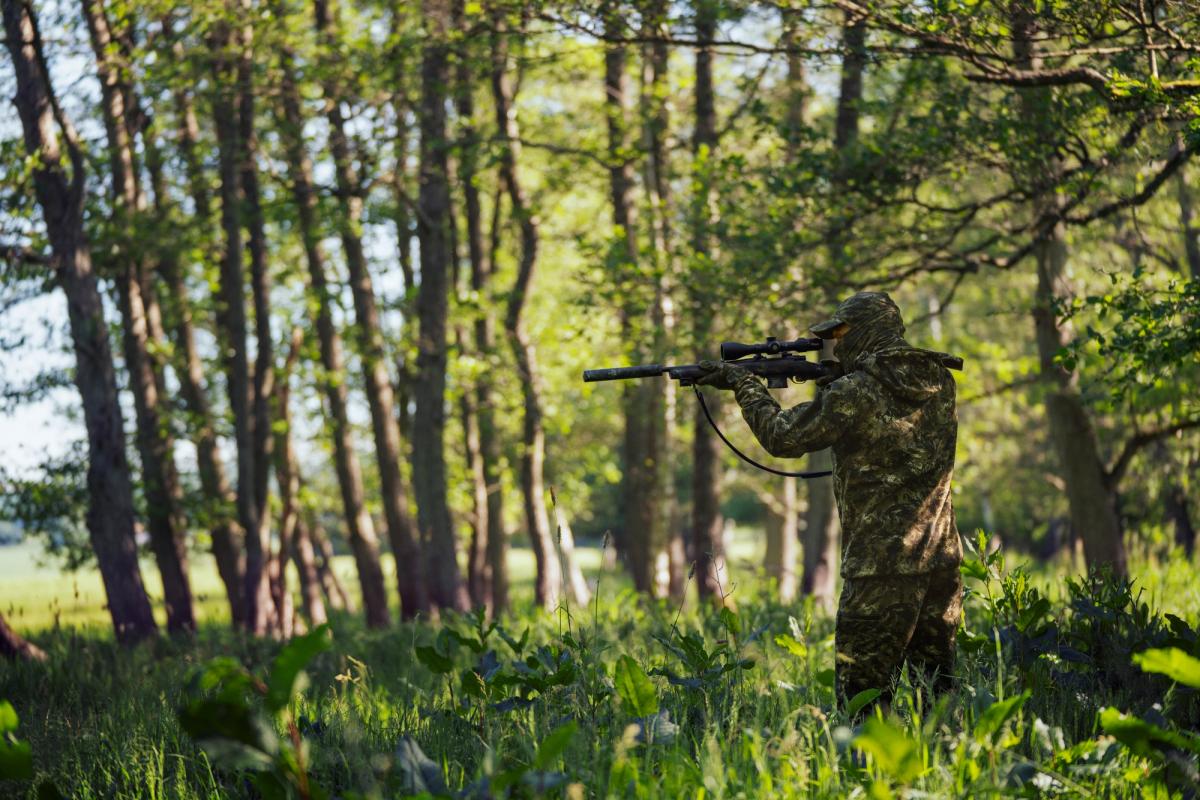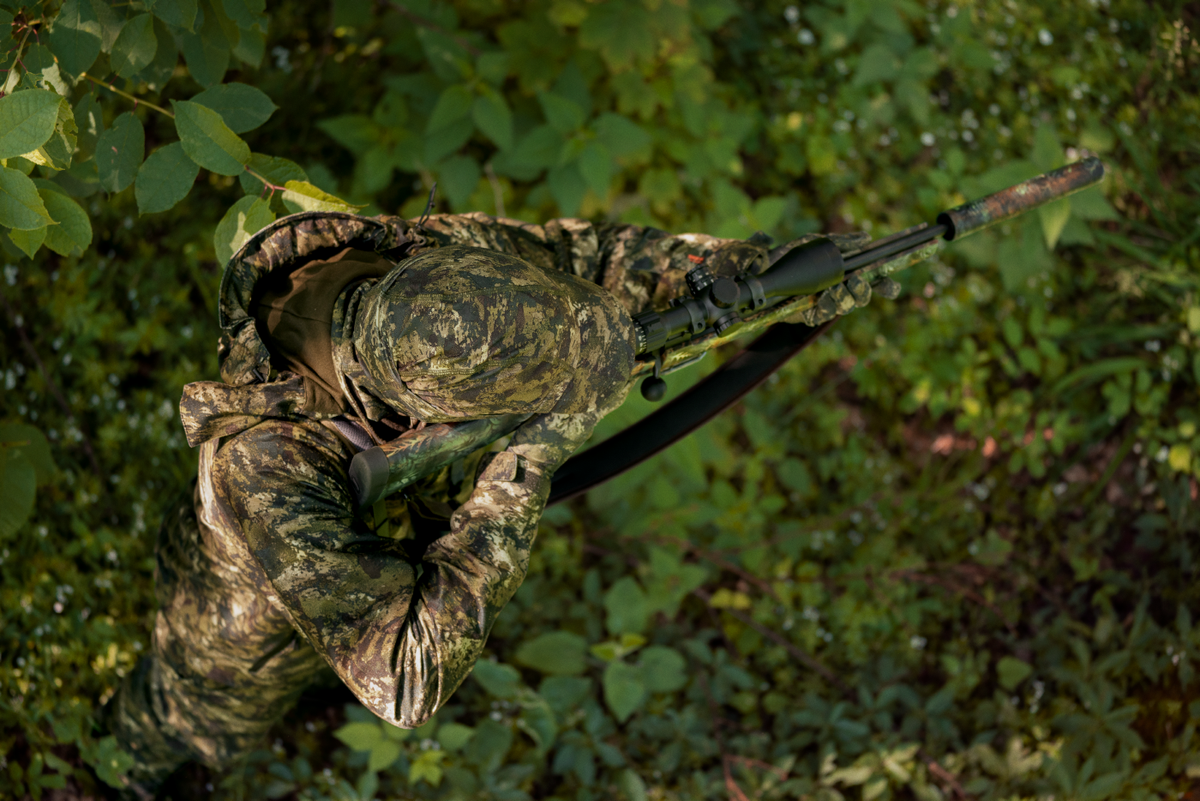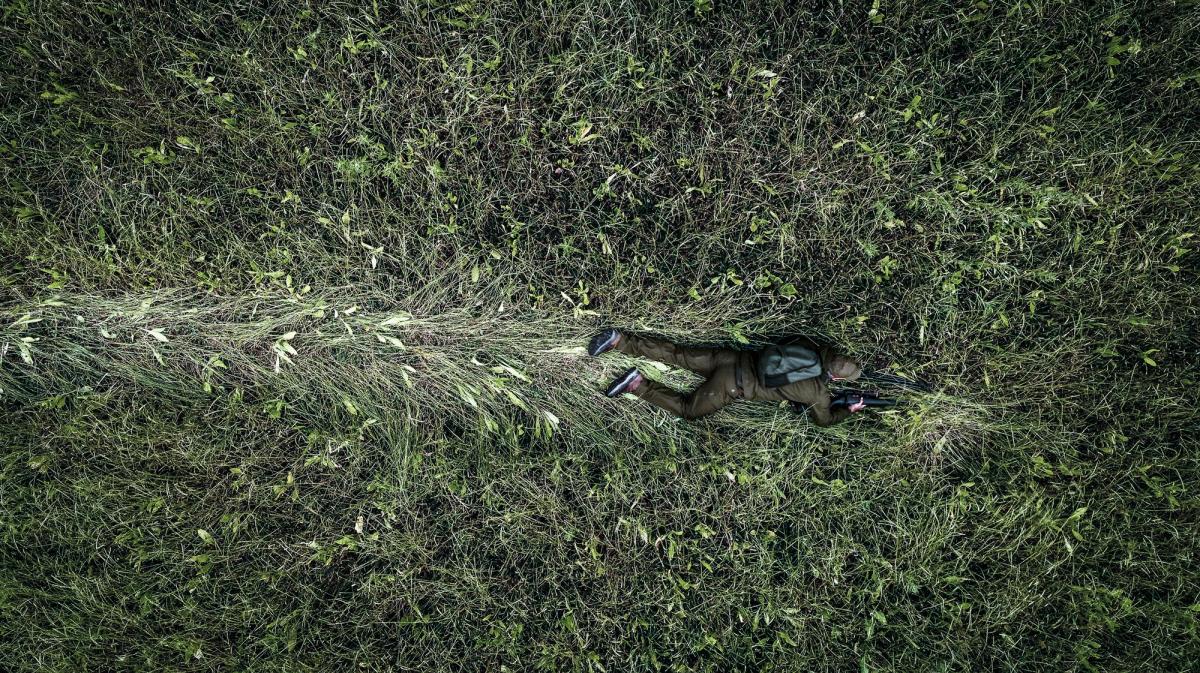Stay in the game. Stay hidden.
6 expert tips on camouflage when hunting
A comprehensive guide on camouflaging yourself when hunting.
Effective camouflage is a key factor to success when hunting. However, it takes a lot from the hunter to effectively camouflage himself from the game. Having the ability to blend in with the environment and stay undetected by the game you’re hunting is easier said than done. But nevertheless, it is one of the best ways to greatly increase your efficiency when out stalking.

These 6 expert camouflage tips for hunting, will greatly increase your chance of staying undetected while stalking the game.
1. Choosing the right hunting clothing & camouflage pattern.
When it comes to camouflage, it hopefully is not too big of a surprise that it requires you to dress roughly according to the environment you’re hunting in. Of course this is important, but having that said, there is much more to effective camouflaging than an exact match between your clothing and the color scheme of your surroundings.
Getting an all-round camouflage pattern is more than enough in most cases in terms of effective camouflage. Another thing to consider is choosing clothing made with a silent membrane.
Outdoor clothing often comes with a crisp membrane that makes a lot of noise once you’re moving and causing friction. Once you have some camouflaging clothing with a low-noise membrane you’re ready to dive into the more technical perspectives if camouflage.
Multi-purpose camo pattern
The Seeland InVis® Camouflage pattern is our own multipurpose camo design based on how the brain interprets the surroundings. This unique camouflage is made of fractals which are repeating shapes found in nature. It is made specifically to blend in to most landscapes with a greenish tint to it, and our different styles are also made with a silent membrane that does not produce noise when friction is caused.
Read more about InVis®2. Be aware of your movement
If you’re not considering how you’re moving around when stalking, it will very often be one of the biggest giveaways that you’re in the area.
A key factor is your own movement in relation to the (possible) position of the game. Both the animal and human eye find it way easier to detect horisontal movements compared to vertical movements. Always try to move in a direct line toward the game when getting into the position of a shot. This has to be taken into consideration together with the other tips.
Noise Minimization
Silence is your ally in the hunt. Wildlife has evolved to have highly sensitive hearing, superior to that of humans, allowing them to pick up on the slightest disruptions in their environment. To blend in, every step and action should be as quiet as a whisper. This includes managing your gear to prevent clinks and rustles, moving slowly to avoid snapping twigs or rustling leaves, and even controlling your breathing.
Avoid crisp membrane clothing, and go for hunting clothing made with a silent membrane or in soft noise-less fabrics.
The quieter you are, the less likely you are to alert your prey to your presence.
3. Background
When moving around or sneaking up to take aim, the background behind you is important to keep in mind. This is to avoid making a silhouette of yourself that is easily detectable for the game. As a rule of thumb you should always try to have a natural background behind you and the potential line of sight of the game. This will make you harder to detect when moving around, and hopefully help you to see the game before it sees you!

Get low! - If there’s no possible way of having a background, you should always try to minimize your silhouette by crouching, crawling or even lying down, as well as the time spent in the open.
4. Light conditions
The light is another important thing to always keep in mind when stalking around. Shadows, sun and reflections can easy give up your presence. When hunting during day-time, try to always move around in the shadows combined with a proper background. This will make you significantly harder to spot.
During dawn or dusk, you should also be aware of the direction of the sun and position yourself accordingly to avoid being backlit and silhouetted.

5. Environment
This has to be combined with the other factors – always try to move vertically towards the game, with a covering background while staying in the shadows – and do it in the best possible environment. This means you should always keep yourself close to dense areas such as trees, bushes and other things that helps you cover up yourself and blend in with the surroundings - always avoid open areas if possible, and if you have to pass such areas, get down while doing it!

Crawling through open areas removes your silhoette completely, making you undetectible for the eye. However, noise is still a thing that can alert your pressence - so if you're close, going slow is often a good choice since this helps you minimize your sound.
6. Use the wind to your advantage
Understanding and utilizing wind direction is a critical component of successful hunting, as it significantly impacts your ability to remain undetected. Animals, particularly game species, have highly developed senses of smell, often able to detect human scent from hundreds of yards away. Thus, being mindful of the wind’s direction and how it carries your scent becomes not just a strategy, but a necessity.
First, before setting out, it's essential to check the wind direction and plan your approach accordingly. Ideally, you want to move with the wind in your face, ensuring that your scent is blown away from, not towards, the game you're stalking. This might require altering your intended path or waiting for a more favorable wind, but such adjustments can dramatically increase your chances of remaining undetected.
Additionally, paying attention to changes in wind direction throughout your hunt is crucial. Wind can shift due to various factors, including time of day and weather changes. Regularly monitoring the wind with a simple wind checker can inform whether you need to adjust your position to maintain your advantage.
Using terrain to your advantage can also help manage how the wind affects your scent. For instance, moving through lower ground, forest or valleys can help keep your scent confined - all kinds of areas that are sheltered from the wind. This is simply because the wind is often not as strong in such areas. Understanding these nuances allows for strategic positioning that maximizes your concealment.
Conclusion
First and foremost, you have to choose a camouflage pattern that blends in with your hunting grounds. Multi-purpose camouflage patterns like our popular InVis Camouflage works perfect as an all-round camouflage pattern in all terrain with a greenish hint to it. So unless you’re keen on owning several different camouflage sets, go for a versatile one – our own Seeland InVis® is a great bet on a multipurpose camo pattern.
When stalking around, choose your movement wisely. Avoid horisontal movement patterns, and strife to always move vertically towards the game. While doing so, make sure your background gives you good cover to avoid creating silhouettes, as well as always trying to stay in the shadows, while surrounding in a covering environment. Almost no matter where you hunt, what is described above is not always a possibility, so get down crawling when you have to cross open/exposed areas.
When speaking effective camouflage, the easy way is very often the wrong way that will potentially reveal you and spook the game.
Last but not least, its important to know that fulfilling all of these tips simultaneously is often impossible when moving around. A hunting session will very often take your through a lot of different terrain where you will have to compromise yourself one way or the other.
This means it is often about prioritizing and choosing a path that exposes you the least way possible.
Click here to read more about our own InVis Camouflage Technology.